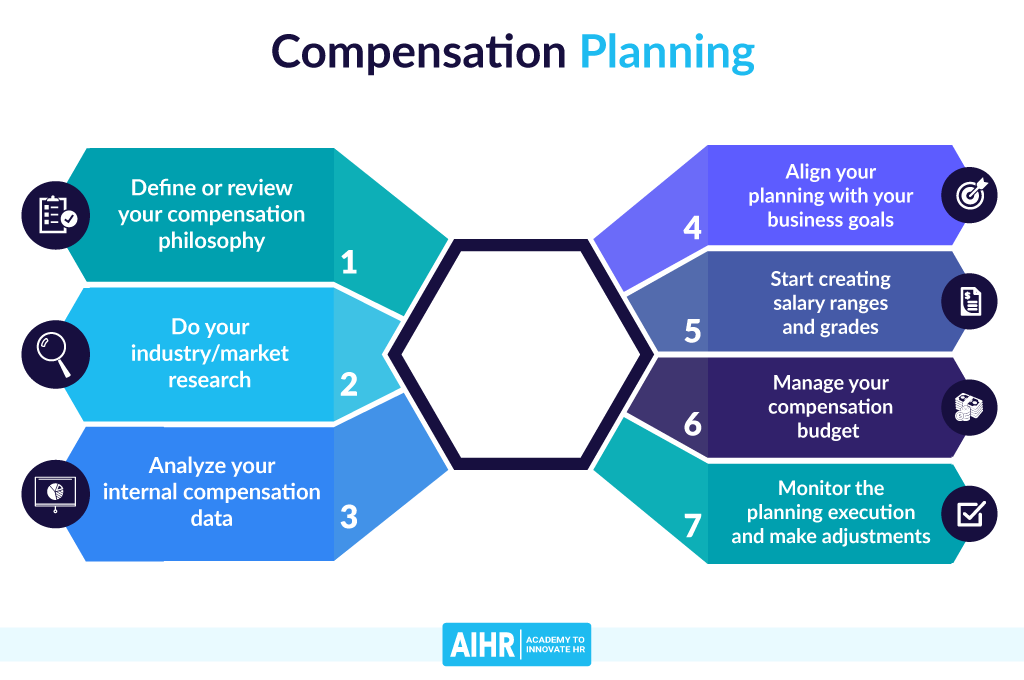Employee benefits and compensation planning plays a crucial role in attracting, retaining, and motivating talented individuals within an organization. A well-designed benefits package not only helps companies stand out in a competitive job market but also contributes to employee satisfaction and productivity. In this article, we will explore the importance of employee benefits and compensation planning and discuss key factors to consider when developing a comprehensive plan.
Benefits of Employee Benefits
1. Attraction and Retention: Competitive benefits packages can be a significant factor in attracting top talent to an organization. When candidates weigh their options, they consider not only their base salary but also the additional perks and benefits offered by potential employers. Similarly, existing employees are more likely to stay when they feel valued and supported through comprehensive benefits programs.
2. Employee Satisfaction: Offering a range of benefits, such as health insurance, retirement plans, paid time off, and flexible work arrangements, can significantly contribute to employee satisfaction. When employees are satisfied, they are more likely to be engaged, productive, and loyal to the company.
3. Productivity and Well-being: Providing benefits that support employee well-being, such as wellness programs, can positively impact productivity and reduce absenteeism. When employees feel cared for and have access to resources that support their physical and mental health, they are more likely to perform at their best.
Components of Compensation Planning
1. Base Salary: The base salary forms the foundation of an employee’s compensation package. It refers to the fixed amount of money paid to an employee in exchange for their services. When determining the base salary, organizations consider factors such as job responsibilities, market rates, and internal equity.
2. Variable Pay: Variable pay includes bonuses, commissions, profit-sharing, and other incentives based on individual and/or company performance. Offering variable pay can motivate employees to achieve goals and drive better results.
3. Equity and Stock Options: Many companies offer equity or stock options to employees as a part of their compensation plan. These options allow employees to share in the organization’s success and can act as a long-term incentive to stay with the company.
4. Benefits and Perks: In addition to salary, organizations provide various benefits and perks to enhance the overall compensation package. These may include health insurance, retirement plans, flexible spending accounts, tuition reimbursement, childcare assistance, and more.
Key Considerations in Compensation Planning
1. Market Research: Conducting thorough market research is essential to ensure that compensation packages are competitive within the industry and region. Benchmarking against similar organizations helps determine appropriate salary ranges and benefit offerings.
2. Legal Compliance: Compliance with labor laws and regulations is crucial in compensation planning. Organizations must ensure they are offering fair wages, adhering to overtime pay requirements, and providing any mandated benefits.
3. Total Rewards Approach: Taking a holistic approach to compensation planning, including both monetary and non-monetary rewards, allows organizations to create a comprehensive package that addresses employees’ diverse needs and motivators.
4. Communication and Education: Clear communication of the compensation plan and benefits is vital to ensure employees understand the value of their package. Conducting regular benefits and compensation workshops can also help employees make the most of the offerings available to them.
Conclusion
Effective employee benefits and compensation planning is crucial for attracting, retaining, and engaging a talented workforce. By offering competitive packages that align with market trends and employee needs, organizations can position themselves as employers of choice. Through careful consideration of base salary, variable pay, benefits, and perks, companies can create a compensation plan that supports overall employee well-being and contributes to long-term success.



